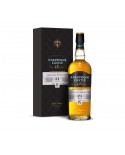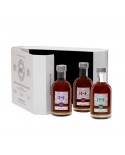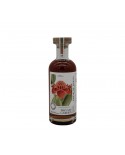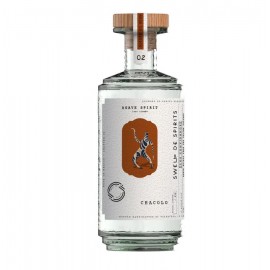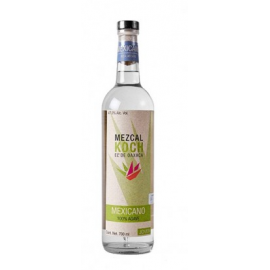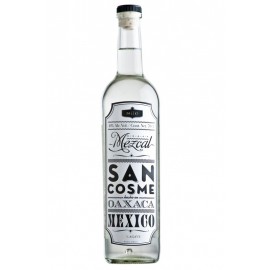-
add
remove
Home
- add remove Pineau
- add remove Liqueur
- add remove Armagnac
- add remove Others
- add remove Calvados
- add remove Cognac
- add remove Grappa
- add remove Glass
- add remove Mix
- add remove SCOTLAND
- add remove Eau de Vie
- add remove Bitters
- add remove Vermouth
- add remove Pisco
- add remove Mezcal
- add remove Genever
- add remove Tequila
- add remove UNITED K
- add remove Porto
- add remove Wine
- add remove RUM
- add remove Soft
- Giftpacks
- BIO
- Single Cask Premium Spirits
- Other
-
add
remove
Rum
-
add
remove
Country
- La Réunion
- Guadeloupe
- Dominican Republic
- Guyana
- Indonesia
- Brasil
- Colombia
- Guatemala
- Philippines
- Panama
- Martinique
- Barbados
- Trinidad & Tobago
- Cuba
- El Salvador
- Jamaica
- Portugal
- Vietnam
- United States
- Italy
- Thailand
- Grenada
- Paraguay
- Nouvelle Zélande
- Mauritius
- Belize
- France
- Others
- Espagne
- Others
- United Kingdom
- France
- Mexico
- India
- Japan
- add remove Type
- add remove Style
- add remove subcategory
- add remove 283
- add remove 281
-
add
remove
Country
-
add
remove
Gin
- add remove Vodka
- add remove Whisky
- 340
- Home
- About us
- add remove Armagnac
- add remove Calvados
- add remove Cognac
- add remove Eau de Vie
- add remove Genever
-
add
remove
Gin
- add remove Grappa
- add remove Liqueur
- add remove Mezcal
- add remove Pineau
- add remove Pisco
- add remove Porto
-
add
remove
Rum
-
add
remove
Country
- La Réunion
- Guadeloupe
- Dominican Republic
- Guyana
- Indonesia
- Brasil
- Colombia
- Guatemala
- Philippines
- Panama
- Martinique
- Barbados
- Trinidad & Tobago
- Cuba
- El Salvador
- Jamaica
- Portugal
- Vietnam
- United States
- Italy
- Thailand
- Grenada
- Paraguay
- Nouvelle Zélande
- Mauritius
- Belize
- France
- Others
- Espagne
- Others
- United Kingdom
- France
- Mexico
- India
- Japan
- add remove Type
- add remove Style
- add remove subcategory
- add remove 283
- add remove 281
-
add
remove
Country
- add remove Tequila
- add remove Vermouth
- add remove Vodka
- add remove Whisky
- add remove Others
- BIO
- Giftpacks
- Single Cask Premium Spirits
- % Sales %
- 340
Mexico
2 Mexican Spirits Los Convidados Mezcal Chacolo
Swell de Spirits X Los Convidados, Agave Spirits from Chacolo, Batch 01/23, Agave 100% Lineno over 9 years old Cooked in Earthen Pit, Juice Extraction by hand with wooden mallets, Fermentation with Wild Yeast for 25 Days In Wooden Tanks with Agave Fibers, Double Distillation in a Fire-Heated Wooden Filipino Still November 2023, Still Strength, 45,3% ABV, only 836 bottles.
Mezcal Koch Mexicano- 47.53%
Maguey mexicano (Agave rhodacantha) is also known as “dobadaan” in some regions, which is its local name in Zapotec. Though exact numbers are unknown, some speculate that there are seven or more sub-varieties of Maguey Mexicano that each produce different characteristics in mezcal. Some of those include Maguey mexicano penca larga, mexicano penca corta, mexicano liso, chontal, and amarillo grande. Many of these sub-varietals are very different looking plants.
Mezcal San Cosme
San Cosme is an artisanal mezcal, made from 100% Espadin agave, grown in the picturesque region of Santiago Matatlán, Oaxaca.
An authentic representative of Mexican tradition, this spirit captures the very essence of Mexico in every sip.
Since 2010, San Cosme has captivated mezcal enthusiasts with its unique flavor profile and modern bottle design.
Mezcal San Cosme Artesano 03
The limited and exclusive editions of San Cosme Artesano celebrate the original diversity of mezcal and its roots in their land. Made with wild agaves and processes of production embedded in tradition, San Cosme Artesano is a careful production down to the smallest detail that enhances the laborious contemporary mezcal work.
Mezcal San Cosme Artesano 04
Mezcal is a Mexican agave distillate that is produced in a special way. Mezcal San Cosme can carry the addition artisanal, because it is produced in pure manual labor.
Mezcal San Cosme Artesano 05
Agave Cuishe between 10-15 years. This version of Artesano is an experience that takes you on a journey of flavours and textures and immediately transports you to the palenque for the entire experience. Mezcal is a Mexican agave distillate that is produced in a special way. Mezcal San Cosme can carry the addition artisanal, because it is produced in pure manual labor.

